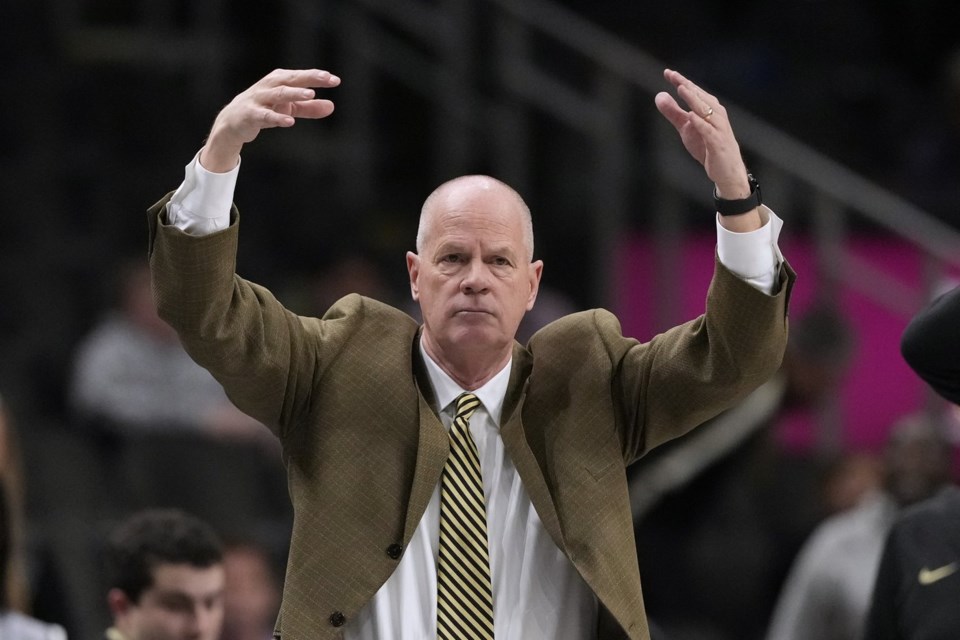The arrival of name, image and likeness deals and looser rules for athletes using the transfer portal in 2021 have transformed college sports so thoroughly that a coach's ability to land good players now has almost everything to do with how much money is available.
The Associated Press approached more than a dozen coaches in the leadup to March Madness to ask them simple questions: How is your job different? Do you like your job as much? Is college sports better or worse since transferring has become easier for athletes?
One of those coaches, who spoke only on condition of anonymity in order to speak candidly, said everything had gotten worse but “as long as we have sufficient NIL money, we can be competitive.”
What other coaches are saying about the current state of the game:
— “You become more of a CEO than a coach,. I probably spend less time on out-of-bounds plays than 10 years ago. You have to evolve and embrace the change.” — Wisconsin coach Greg Gard.
— "I’ve always been in favor of taking care of players and helping them. I don’t think any of us could ever imagine in our wildest imagination it would be where it is in terms of the number of money that’s being offered at this time. But I don’t even think we thought there would be a day where kids could transfer one right after the other, but that’s where it is.” — Tennessee coach Rick Barnes.
— "We’re still trying to recruit young players that want to come, want to be developed, want to be coached hard, want to reach their potential and none of that has changed. Obviously, the landscape of being able to recruit older players out of the portal and things like that, that has changed, But our reason for being has not.” —Colorado women's coach JR Payne.
— “I think it’s great that our players have the opportunity to make money off of their name, image and likeness. That’s something that they deserve to have. I think we’re just trying to figure out how to navigate that, and how all of these changes are going to play out. So we’re in a period of change and you know, in life, you have to change or it’s gonna pass you by.” —Michigan women's coach Kim Barnes Arico.
— “My job has doubled in the last four years from my fundraising capabilities to my CEO responsibilities to CEO-GM-fundraiser and, oh yes, I’m supposed to be a coach, too." —UCLA women's coach Cori Close.
— “One thing I enjoy is seeing the players' families at the games and seeing them travel on road trips and being more part of this. And so before NIL, that wasn’t an option. And then, also to see guys have a nest egg when they’re done with college.” —Michigan coach Dusty May.
— “Who did the research on what psychological effect it has where you can have 40% of the kids making poor decisions? How well thought-out was this?” —Former Florida State coach Leonard Hamilton on the hundreds of players who enter the transfer portal and end up not finding another place to play.
— “I'm shocked at the guys I'm calling right now who are saying, ‘We’re hoping to go Division I and maybe get some NIL.' I'm thinking, ‘They’re not that good.'” —Jim Crutchfield, coach of Division II champion Nova Southeastern on the impact NIL has had on his program.
— “When you’re a college head coach, you’re almost the CEO times 10 compared to what you are in the NBA. That part intrigued me as well.” —BYU coach Kevin Young on his jump from an assistant coach in the NBA to college.
— “You have to change. You have to adapt. If you’re not willing to to adapt and change, this business will eat you up.” —Colorado coach Tad Boyle.
___
AP March Madness: https://apnews.com/hub/march-madness
The Associated Press


